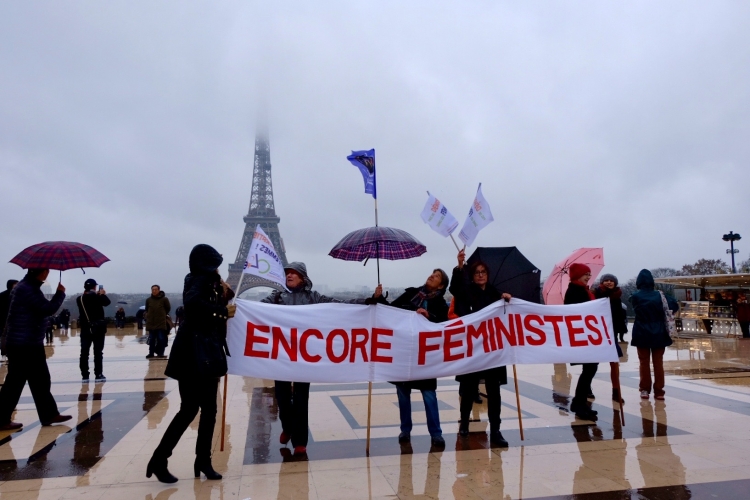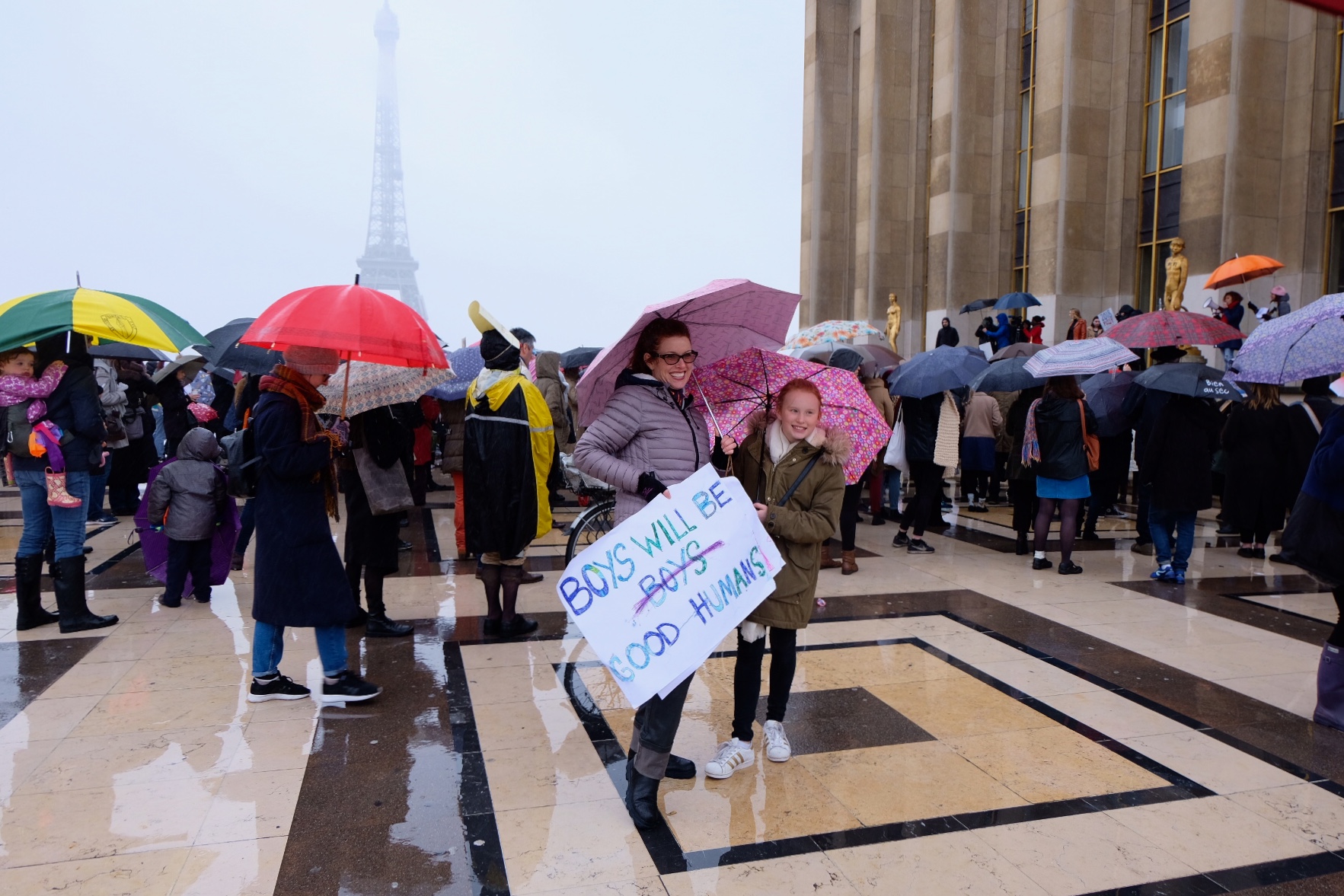Women's March 2018

On 21 January 2018, the one-year anniversary of the Women’s March took place in Paris. A year ago, women all across the globe gathered to express their views and demand equality. On a frigid and wet Parisian day, supporters gathered at a rally in Trocadero with signs that read “Every vote counts”, “2018 Pussy Strikes Back” and “Boys Will Be Good Humans”.
The first Women’s March was sparked by the election of now President Donald Trump. It had been deliberately planned for Trump's first full day in office. Over five million women came together to stand up against sexist, racist, homophobic, and xenophobic ideology. What originated from the hundreds of women coming together to advocate for legislation for human rights has evolved into one of the most famous protests. The majority of attendees were not French but American—in fact, the rally was led in English. The lack of Parisians in attendance is only one of the few changes the Women's March has seen in the past year.
Image Credit: Teresa Segovia
One of these changes comes from the very apparent lack of minority women. Many women of color have voiced their views on the fact that the Women’s March has not acknowledged intersectionality. Intersectionality is a section of feminism that demonstrates that feminism is not one equal playing field. Different women have disadvantages due to their class, race, ethnicity, religion and sexual orientation. For example, if a wealthy white woman is offended by something it is more likely to be changed than if a poor black woman is offended by it.
52 percent of white women cast their vote for Donald Trump in the 2016 United States Presidential election. 63 percent of white women voted for Roy Moore—an accused child molester—in the Alabama Senate elections. Black women came out in historic numbers to cast their vote for Democrat James Moore, a former prosecutor of the Ku Klux Klan. The lack of trust between minority women and white American women seem to only be growing with each new election. It is now time for the Women's March around the globe to do more than just walk around with witty phrases; It is time for action.
Image Credit: Teresa Segovia
One undeniable accomplishment of last year's march is that it has sparked a new wave of activism against sexual assault within many industries—most notably, Hollywood. From the United States' #Metoo movement to France’s #Balancetonporc, women were no longer staying silent about sexual assault. Women around the globe were now publicly calling out their assaulters.
This has also become a controversial topic in France. French actress Catherine Deneuve wrote a piece in the French newspaper La Monde criticizing the #Balancetonporc movement. Devenue stated in the article that, “Rape is a crime. But insistent or clumsy flirting is not a crime, nor is gallantry a chauvinist aggression.” This is important in how the movement is taking shape in France. American University of Paris' own professor Lissa Lincoln held a conference on February 9 and 10, discussing the controversy with other feminist scholars.
Expat Emma Phillips attended this year’s rally, stating, “it is not a straightforward process and we see that with the letter in Le Monde. In general, there is a feeling that the tide is turning. Everybody who now thought that this is what life is like and this is part of what being a woman is now changing.”
Another woman at the rally mentioned, “It’s a different generation, it’s a different culture. France has a different approach to things like sex and masculinity.”
Whatever your views on Catherine Devenue’s letter is or your thoughts on intersectionality, it is undeniable that the tide is turning. Women are coming together in historic numbers. Women of color are now becoming more active in social change. Women are no longer staying silent about sexual assault. Women are going to change 2018.
Additional reporting by Teresa Segovia









